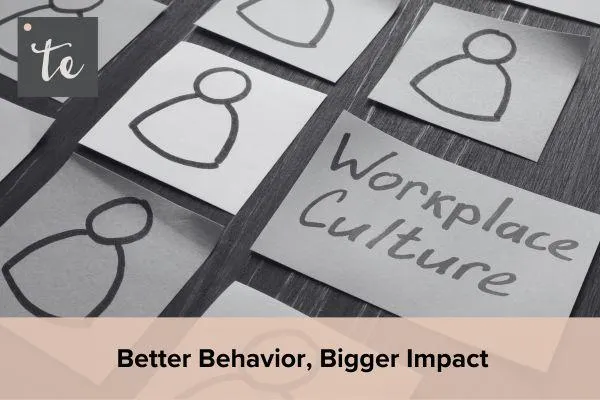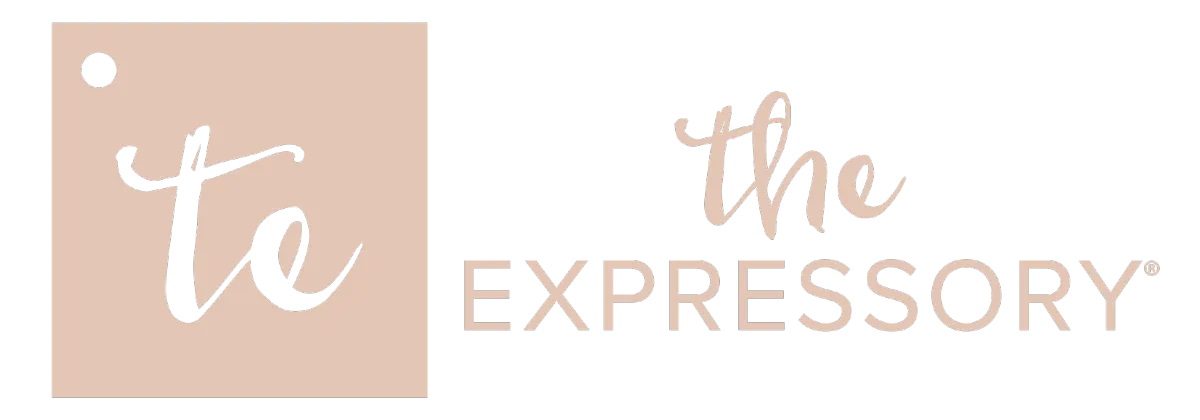
What Swimming Teaches Us About Team Relationships
In my latest video, I break down how swimming teaches us the importance of these relationship-building efforts and the specifics of what we as leaders need to nurture with our teams.
Holiday Gift Insights - What Everyone Else Is Doing
In an effort to simplify the decision-making process, we're sharing some of the trends we've seen with gifting over the years. We're even sharing our best seller and why that gift had such success.
What Makes A Successful Holiday Gift? The Travel Bag Edition
Last year we had the opportunity to work with one of our clients in the travel and tourism space to design an experience that delivered their highest engagement yet.

Better Behavior, Bigger Impact
Workplace behavior is the silent driver of business success. Every interaction—whether respectful or dismissive—shapes team dynamics, workplace culture, and overall productivity. A positive environment fosters collaboration, reduces stress, and propels teams toward shared goals. On the flip side, small acts of incivility can ripple outward, eroding trust, dampening engagement, and ultimately impacting a company's bottom line. Leaders must recognize that workplace behavior is not just an HR concern but a strategic priority.
How Did We Get Here?
According to Dr. John O’Brien, a professional speaker and executive coach, incivility has been on the rise in workplaces, particularly since the pandemic. “The past 10 years have seen an acceleration in people being more self-focused, less sensitive to others' needs,” he explains. The pandemic amplified this trend, with stress and survival instincts taking precedence over empathy. Interruptions during meetings, unacknowledged contributions, and neglect of shared spaces are just a few ways this cultural shift manifests.
Dr. O’Brien’s insights are supported by data. A 2022 study from Georgetown University found that 76% of employees experienced workplace rudeness at least once a month—up significantly from 55% in 2007. Even minor acts of incivility can disrupt team cohesion, increase stress, and reduce productivity by as much as 13%. These behaviors may seem insignificant in isolation, but over time, they diminish morale, trust, and engagement.
Signs of Incivility in the Workplace
Recognizing the signs of incivility is the first step toward addressing it. Dr. O’Brien identifies common behaviors that harm workplace dynamics:
Interrupting in Meetings: Often dismissed as enthusiasm or impatience, interruptions can breed resentment.
Ignoring Contributions: Overlooking someone’s ideas, only to validate them when restated by someone else, fosters feelings of exclusion.
Favoritism: Even subtle favoritism can alienate team members who feel left out of the “in” group.
Victimless Incivility: Neglecting shared responsibilities, like cleaning up in common areas, affects the collective morale.
Gossiping: Leaders who vent frustrations to team members risk undermining trust and creating a toxic atmosphere.
These behaviors may seem trivial, but they add up, creating a workplace where stress thrives, and trust erodes.
The Cost of Stress and Incivility
Unmanaged stress is a major contributor to workplace incivility. Constant connectivity and overloaded schedules leave little room for reflection or empathy, pushing people into survival mode. Research from the American Institute of Stress reveals that over 80% of workers feel stressed at work, and nearly half struggle to manage it.
The financial cost of incivility is also significant. A Harvard Business Review study found that workplace incivility led 12% of employees to quit their jobs and 25% to reduce their work effort. Replacing disengaged employees, combined with lost productivity, adds a tangible burden to businesses.
Building Back Civility - For Yourself and Your Team
Reversing incivility starts with deliberate actions to foster respect, empathy, and accountability. Here are five actionable strategies:
1. Cultivate Self-Awareness
Dr. O’Brien emphasizes the importance of self-reflection: “The news flash is there’s only one person you can change, and that’s you.” He recommends a mindfulness technique—Stop, Breathe, Reflect, and Choose—to pause and make intentional decisions aligned with values.
2. Practice Thoughtful Communication
Active listening and acknowledgment are key to respectful interactions. Leaders can foster open communication by holding regular check-ins, creating spaces for honest feedback, and ensuring every voice feels valued.
3. Build Breaks into the Schedule
Scheduling short buffers between meetings allows employees to recharge and approach the next task with clarity. Some businesses have adopted 50-minute meetings to create this breathing room.
4. Lead by Example
Leaders set the tone. Modeling inclusivity, managing stress, and showing empathy can inspire teams to follow suit. As Warren Buffett famously said, “It takes 20 years to build a reputation and five minutes to ruin it.”
5. Foster Kindness and Accountability
Being “relentlessly helpful,” as Dr. O’Brien advises, builds goodwill and trust. Whether offering guidance or simply trying to assist, small acts of kindness strengthen workplace relationships and morale.
The rise of incivility isn’t inevitable. By embracing mindfulness, thoughtful communication, and intentional leadership, organizations can transform their workplaces into hubs of respect and collaboration. As Dr. O’Brien reminds us, “We need to pay attention to our working relationships even more than our personal ones. After all, we spend most of our days together.”
Civility is more than a nice-to-have—it’s a business imperative. And when done right, it fosters not only a thriving workplace but also a lasting impact on the bottom line.
If you’re ready to explore opportunities to improve your team culture, we’re here to help. At The Expressory, we specialize in creating strategies that build meaningful connections and drive long-term success. Whether you want to dive deeper into these ideas or need guidance on implementing them, we’d love to hear from you. Join one of our upcoming Q&A sessions to explore these strategies further or schedule a one-on-one consultation tailored to your unique needs. Let’s create a workplace culture you—and your team—can be proud of.
Don’t forget to check out Dr. O’Brien’s, Rudeness Rehab, for even more insights on reclaiming civility in the workplace!
Address:
1500 S. Sylvania Ave #106
Sturtevant WI 53177
Phone:
414.243.8971

